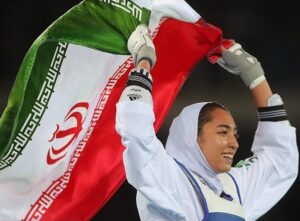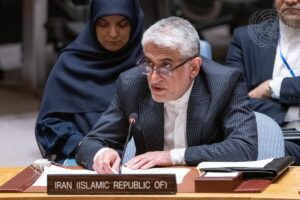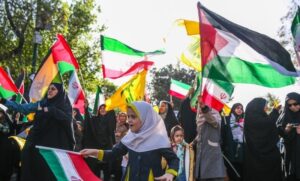Stimson’s “Syria Series”, closed roundtables under Chatham House Rule for renowned regional and international experts, aims to unpack the complexity and enhance understanding of the policies and perceptions of players in the Syrian conflict.
As part of its roundtable activity “Syria Series”, Stimson Middle East and North Africa (MENA) Program held the second online edition entitled Regional Consequences of the Syrian Conflict on Lebanon, Jordan, and Iraq on the 19th of September 2022, under Chatham House Rule.
The humanitarian, security and economic dynamics of Syria are interlinked with that of Lebanon, Jordan, and Iraq after more than eleven years of a devastating war. The drowning of more than 77 Lebanese and Syrians among others after their boat heading to Europe sank off the Syrian shores on September 23 highlights the cross-border dimensions of the humanitarian misery for both countries.1 Note: NPR, 23 September 2022 “At least 77 people died when a boat carrying migrants sank off Syria, an official says,” https://www.npr.org/2022/09/23/1124806885/77-dead-migrant-boat-sinks-syria-lebanon The security impact of the ongoing conflict in Syria has transformed from the movement of non-state-actors across borders to established networks for smuggling drugs to Jordan en transit to the Gulf. And the US-Iran confrontation is played out in both countries, making the US presence in Syria and Iraq increasingly interconnected.
To discuss the regional interconnections between Syria and its three neighbors Lebanon, Jordan, and Iraq the Stimson MENA Program, gathered experts and policy makers from the EU, Germany, Iran, Russia, Switzerland, Lebanon, Iraq, Jordan, and the US to share insights on this important aspect of the Syrian crisis. The roundtable was moderated by Kawa Hassan, Executive Director Stimson Europe, Director MENA Program and Senior Fellow, and Abdulla Ibrahim, Non-resident Fellow, Stimson MENA Program.
The war in Ukraine has diverted the international community’s political, financial and media attention from Syria with two immediate consequences. First, it deprived Syria as well as the region from much needed material support in the middle of an unprecedented regional economic collapse: Syria and Lebanon with depended economic disaster, Jordan, and Lebanon with increased burden of the Syrian refugees, Jordan with the drugs and smuggling networks, and Iraq with the endemic corruption. These economic woes are interconnected to political challenges. Second, it left the Syrian conflict with no horizon for a political solution due to the polarization of global politics. The Russian preoccupation with Ukraine has also left a security vacuum that is filled by Turkey, Iran, ISIS, and many others. That has led to “eroding the long-held stalemate in Syria,” as one expert suggested. With dire consequences for Syria and the region, attention is urgently warranted, and a new, proactive policy is required.
With dire consequences for Syria and the region, attention is urgently warranted, and a new, proactive policy is required
Dual Support: Syrians in Lebanon and Lebanese Citizens Need Attention
Caring for the Syrian refugees in a failing Lebanese state is as hard as providing for Lebanese citizens. Lebanon has been hit by consecutive economic crises lately: covid-19 pandemic in 2020/2021, after the economic crisis in mid-2019. This has resulted in a drastic deterioration of the rights and living conditions of both Lebanese citizens and Syrian refugees. Lebanon has a poor record in treating refugees, and Syrians are no exception. Syrian refugees are treated as “guests” and denied basic rights like to employment and education. Around 80% of Syrians in Lebanon are not legal residents and are therefore vulnerable to political and economic abuses. Within Lebanon, there is an increasingly discriminatory discourse against Syrian refugees with a tendency to blame them for all the country’s failures, mentioned one of the experts
Despite the push factors to leave Lebanon, voluntary return to Syria has not increased. Since 2016, only 70.0002 Note: HRW, 21 October 2021, “Our Lives Are Like Death: Syrian Refugee Returns from Lebanon and Jordan.” https://www.hrw.org/report/2021/10/20/our-lives-are-death/syrian-refugee-returns-lebanon-and-jordan out of 1.5 million3 Note: according to UNCHR https://www.unhcr.org/lb/at-a-glance#:~:text=Lebanon%20remains%20the%20country%20hosting,13%2C715%20refugees%20of%20other%20nationalities. has returned to Syria, with many of them coming back to Lebanon again. In 2021, there were only roughly about 5.000 returning Syrian refugees to Syria according to Human Rights Watch (HRW). The majority of Syrians in Lebanon are thus still opting to remain in Lebanon. Concerning Syrians that have opted to come back to Lebanon after returning to Syria, they were confronted with several grave human rights violations that included kidnapping, execution, and sexual assaults according to a study by HRW on returnees between 2017-2021.4 Note: HRW, 21 October 2021, “Our Lives Are Like Death: Syrian Refugee Returns from Lebanon and Jordan.” https://www.hrw.org/report/2021/10/20/our-lives-are-death/syrian-refugee-returns-lebanon-and-jordan Refugees also spoke about the struggle to survive in Syria due to electricity cuts and a lack of food. In line with HRW findings, the Syrian Commission of Inquiry states that Syria continues to be unsafe to return.5 Note: https://snhr.org/blog/2022/09/15/report-of-the-independent-international-commission-of-inquiry-asserts-that-syria-is-an-insecure-country-for-refugees-return/
Supporting the Syrian refugees in Lebanon cannot be effective without addressing the wider crisis in Lebanon.
Supporting the Syrian refugees in Lebanon cannot be effective without addressing the wider crisis in Lebanon. The Lebanese state is unable to support its own citizens and channeling more aid to Syrian refugees living next to poor Lebanese raises moral and political questions in addition to societal tensions. Experts warned that the confluence of the growing volatility on the ground and the increasing economic dire straits is very dangerous for Lebanon and beyond including Europe, and therefore there is a need for an out of the box thinking and approach by international players and donors. They suggested some ideas to address this immense challenge ranging from supporting the Lebanese state, devising solutions to grant access to education for Syrian refugees, improving the effectiveness of aid and assuring that it arrives to the right recipients, considering distinguishing between the Syrian refugees and economic migrants, and considering regional and global demographic burden sharing.
Worse than ISIS: International Cooperation is Key to Address the Devastating Impact of Syrian Drugs on Jordan’s Stability
Jordan felt the shocks of the Syrian crisis on its security and economy since day one. The negative indirect impact affected the economy of the north of Jordan in terms of increased unemployment, reduced growth, and swollen poverty. The issue of refugees in Jordan is becoming “routine,” and it has become a new reality for Jordanian society, as one expert explained. The smuggling of drugs has now become a devastating factor not only to Jordan’s security but more importantly to its social fabric. The protraction of the unresolved Syrian crisis has increased the inefficiency of the whole Jordanian state institutions.
The issue of refugees in Jordan is becoming “routine,” and it has become a new reality for Jordanian society, as one expert explained.
When it comes to drug smuggling, historically, Jordan functioned as a transit hub between Syria and the Gulf. But now Jordan is becoming a hub for well-rooted networks of criminality that is pervasive into the Jordanian society structure. The fall of ISIS and the collapse of arms smuggling have given way to drugs to fill the vacuum. These arms-based networks turned into drugs-based networks and have penetrated the region and are on their way to becoming institutionalized across borders in the region. The lack of a political horizon and the unstoppable state collapse in Syria threatens a resurgence of a new kind of radicalism. The risk of ignoring drugs-smuggling and finding a political solution to the Syrian conflict potentially will lead to a potential “marriage” and “unholy alliance” between ISIS and criminal networks, which is a serious threat to regional security. The international community should introduce a cooperation model similar to the anti-ISIS coalition, which includes intelligence sharing and enhancement of border control techniques and capabilities. Improving rule of law in Syria is inevitable for any strategy to curb drug production and smuggling to devastate social structures on the regional level. This new strategy requires a political solution in Syria.
Jordan launched a political initiative for the conflict in 2021 when it realized that there is a need for a realpolitik vision in dealing with the war in Syria. This initiative reflects the shifting priorities of Jordan to focus on stability, as well as for other Arab countries like the UAE. Given the unprecedented challenges arising from the lack of vision to end the ongoing conflict in Syria, finding a solution is a part of Jordan’s national security. However, Jordan cannot go far alone without support from its allies and with cooperation from the Syrian government. Despite the Jordanian interest to see a solution in Syria, there is a lack of vision on what the future Syria should look like. It is worth noting that Jordan’s relationship with the Syrian government has been historically filled with rivalries and mired with ideological and political rivalries, and personal differences. But in the end, Jordan and Syria do share a border, and stability in Syria is of Joran’s national interest. The lack of vision and active policies toward a political solution in Syria from the international community is alarming to Jordan, and that is the motive behind its 2021 initiative.
Mini-ISIS State: Iraqis in ISIS Prisons and Camps in Northeast Syria are a Ticking Timebomb, and a Collective Solution is Needed
For Iraqis, Syria has been a source of instability for years since the Syrian Government used to allow its borders for terrorists to cross to Iraq to attack the US forces and Iraqi civilians. After 2011, the crisis in Syria brought multiple economic and security challenges to Iraq, especially for the semi-autonomous Kurdistan region and Mosul. These intertwined security and economic challenges have affected internal Iraqi politics, such as the dynamics between Iraqi Sunni-Shite groups. In addition, the fragmentation of Iraqi politics has led to fragmented policies toward Syria. The instability in Syria has reduced the Iraqi GDP by 1.2 Percentage Point according to a study by The World Bank in 2020, due to the negative effects on investment, tourism, and Syrian refugees.6 Note: 18 June 2020, “The Ripple Effects of the Syrian Conflict in the Mashreq Region,” World Bank. https://www.worldbank.org/en/news/press-release/2020/06/17/fallout-of-war-in-syria
For Iraqis, Syria has been a source of instability for years since the Syrian Government used to allow its borders for terrorists to cross to Iraq to attack the US forces and Iraqi civilians.
Apart from the national impact on Iraq as a whole, the war in Syria is affecting Iraqi regions differently. In the Kurdistan Region of Iraq (KRI), the Syrian crisis influences the relationship between Kurdish parties such as the PYD/KDP, and the KDP/PKK, which are also influenced by regional players, such as Turkey and Iran. Economically, Syrian oil and products are refined in Iraqi Kurdistan before being exported through Turkey. It is important to note that much of the aid that goes to Syria crosses through KRI, which is often dependent on the border crossings that could be closed due to disagreements between the Iraqi KDP and the Syrian PYD. More to the south in Iraq, the Popular Mobilization Forces (PMF) and the Iraqi central government are key players, where the Iraqi non-state-armed groups have a presence on both sides of the borders. This is an issue of great contention between Iraq, Iran, and the US. Iraq has furthermore formed a bridge for Iranian aid to Syria. Therefore, the US and Iranian presence in both countries is a source of destabilization in Iraq, and events in either country affect the other drastically.
There is also the issue of the ISIS camps and prisons in the Northeast of Syria that hold a lot of Iraqi citizens. For example, the al-Hol camp holds more than 50.000 ISIS family members, one third of them are Iraqis, which is a big problem for Iraq, Syria, and the international community. For Iraqis, the camp is a ticking timebomb and Iraqi officials have avoided dealing with the issue altogether. The key question here is: what can the international community do to address this problem? An expert noted that most stakeholders are not truly trying to solve the issue because there is a lack of jurisdiction in dealing with those detained in al-Hol, and there is no agreed-upon solution to this thorny issue. For Iraqis, unofficially, it a taboo to speak about al-Hol. On the other hand, the unclarity of the situation inside the camps makes it difficult to find a solution.
Notes
- 1Note: NPR, 23 September 2022 “At least 77 people died when a boat carrying migrants sank off Syria, an official says,” https://www.npr.org/2022/09/23/1124806885/77-dead-migrant-boat-sinks-syria-lebanon
- 2Note: HRW, 21 October 2021, “Our Lives Are Like Death: Syrian Refugee Returns from Lebanon and Jordan.” https://www.hrw.org/report/2021/10/20/our-lives-are-death/syrian-refugee-returns-lebanon-and-jordan
- 3Note: according to UNCHR https://www.unhcr.org/lb/at-a-glance#:~:text=Lebanon%20remains%20the%20country%20hosting,13%2C715%20refugees%20of%20other%20nationalities.
- 4Note: HRW, 21 October 2021, “Our Lives Are Like Death: Syrian Refugee Returns from Lebanon and Jordan.” https://www.hrw.org/report/2021/10/20/our-lives-are-death/syrian-refugee-returns-lebanon-and-jordan
- 5Note: https://snhr.org/blog/2022/09/15/report-of-the-independent-international-commission-of-inquiry-asserts-that-syria-is-an-insecure-country-for-refugees-return/
- 6Note: 18 June 2020, “The Ripple Effects of the Syrian Conflict in the Mashreq Region,” World Bank. https://www.worldbank.org/en/news/press-release/2020/06/17/fallout-of-war-in-syria



